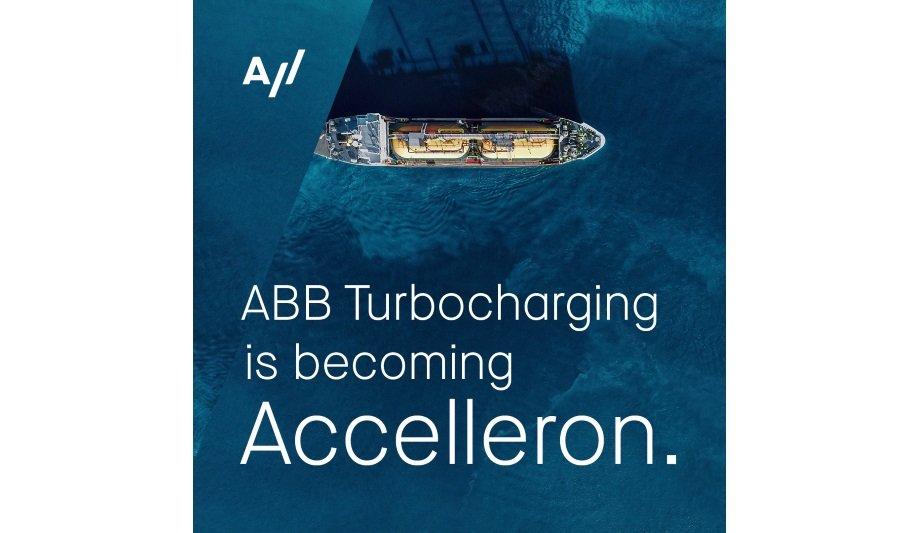ABB announces that its Turbocharging division (PA), a pioneer in heavy-duty turbocharging for diesel and gas engines, has unveiled its new brand name ‘Accelleron’, a compound word of: Access – Accelerate – Excel – on and on, with a bold new colour of bright purple representing a powerful, inspirational, and noble brand.
The new brand is centred around the company's purpose: ‘Together we inspire, innovate & exceed expectations’ – setting industry benchmarks for the benefit of all. It also builds on the company’s legacy of over 100 years in turbocharging, embodying the ambition to continue its development as a global pioneer in its sectors, helping the world succeed and move further in a more sustainable way.
Portfolio management strategy
The first practical application of turbochargers, which were invented by Swiss national Alfred Büchi, was for large marine engines built by Brown Boveri & Co. (now ABB) in 1924. The new brand is part of ABB’s portfolio management strategy to operationally separate the Turbocharging division before a final decision is made between a sale or a spin-off of the business towards the end of the first quarter. Whichever path is chosen by ABB to separate the business, this process should be completed in the first half of 2022.
In the case of a spin-off, Oliver is expected to become Chairman of Accelleron
“Unveiling the Accelleron brand is a seminal moment for our business. We are proud about our heritage but are also excited about our next chapter of growth, providing cutting-edge technology and service solutions for our clients,” said CEO Oliver Riemenschneider, who will be succeeded by Daniel Bischofberger on March 1, 2022, rejoining ABB from Sulzer. In the case of a spin-off, Oliver is expected to become Chairman of Accelleron.
Global service network
Accelleron is a pioneer in turbocharging technologies and optimisation solutions for 0.5 to 80+ MW engines, helping to provide sustainable and reliable power to the marine, energy, rail, and off-highway sectors. With an installed base of approximately 180,000 turbochargers and a network of more than 100 service stations worldwide, its innovative technologies and digital solutions give its customers the power to move further.
In 2021, it achieved revenues of approximately $750 million and has over 2,300 employees worldwide, of which roughly 800 are located at its headquarter and global R&D centre in Baden, Switzerland. It is a pioneer company in its industry and preferred partner to an estimated 6,000 customers through its global service network in more than 50 countries.
Carbon fuel technologies
Accelleron is a pioneer in technology and commercial prototype projects with alternative fuels
One key market driver- in Accelleron's industry is the trend towards decarbonisation against the background of international and national regulations. For example, the International Maritime Organisation’s goal of halving GHG emissions from ships by 2050 is driving demand for efficient and sustainable technologies.
Upgrades and new net-zero carbon fuel technologies are expected to support the strategic direction of the business in the next years. Accelleron is a pioneer in technology and commercial prototype projects with alternative fuels such as hydrogen, methanol, and ammonia. Turbochargers enable significant improvements in efficiency, increasing engine output by up to 300 percent and thereby energy efficiency by up to 10 percent.
Reducing fuel consumption
Conventional engines would be up to four times their size without a turbocharger. Under ideal conditions, ABB’s turbochargers offer a further 2 percent improvement compared to the industry benchmark, amounting to $1 million in lifetime savings for a large container vessel.
ABB’s turbochargers reduce fuel consumption and hence CO2 emissions by an average of 405,000 tons per annum for the shipping industry alone, while also playing a crucial role in balancing power for national grids, power extensions in emerging economies and microgrids as well as back-up power for critical infrastructure, e.g. data centres.
